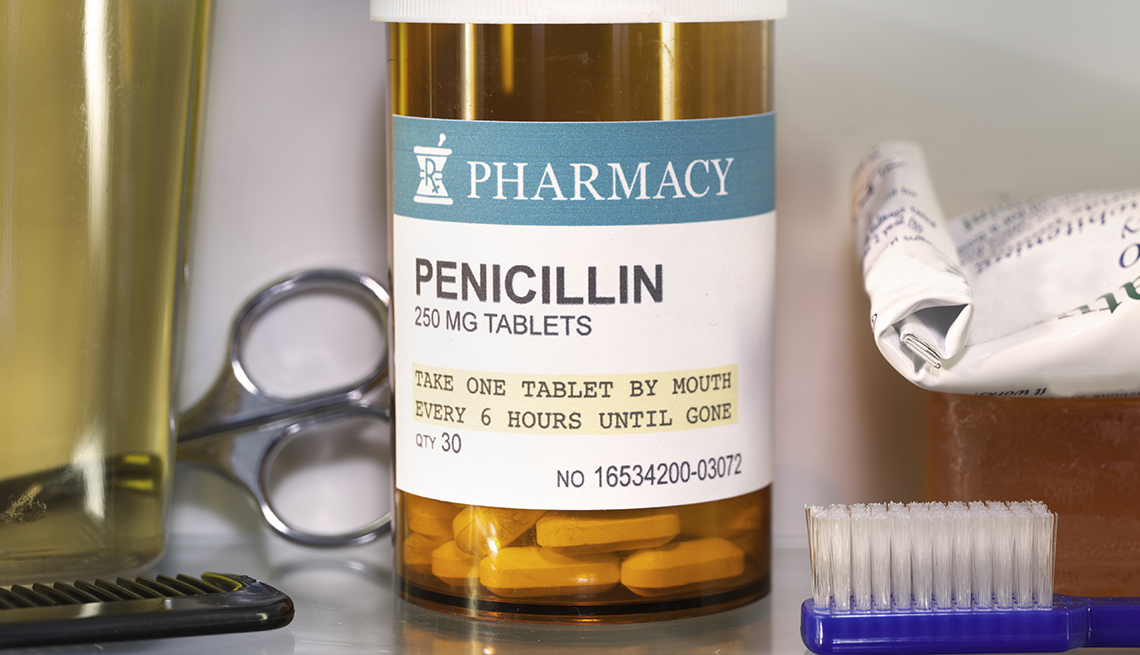Staying Fit
If you’re like the one in 10 Americans who think they have a penicillin allergy, you’ve probably been avoiding the drug for decades. Not only is that probably unnecessary, but it could be dangerous for your health, experts say.
Unlike unnecessarily avoiding peanuts, not taking penicillin when it would normally be prescribed can have serious health consequences for an individual as well as for society. A recent study of over 300,000 patients in the U.K. over six years is the first to show the extent of the danger. Those who reported a penicillin allergy — and thus were given alternative antibiotics — had 69 percent more staph infections (specifically, the antibiotic-resistant Staphylococcus aureus [MRSA]) and 26 percent more Clostridium difficile infections than those without a penicillin allergy. Those infections can be difficult to treat and even life-threatening. So it’s more important than ever, researchers say, for those who think they have a penicillin allergy to find out if they really do.


AARP Membership— $12 for your first year when you sign up for Automatic Renewal
Get instant access to members-only products and hundreds of discounts, a free second membership, and a subscription to AARP the Magazine.
“We want to use the most narrowly effective antibiotic possible, and if allergies are getting in the way of that, gather more information” about the suspected allergy, says Kimberly Blumenthal, M.D., assistant professor of medicine at Harvard Medical School and lead author of the study, published this summer in The British Medical Journal. She says that less than 1 percent of people who have a penicillin allergy on their record get it verified. It’s possible that even a brief conversation with your doctor could clear up the confusion. Otherwise, a simple skin test is available to determine a true allergy.
Penicillin is very targeted. It can kill invasive bacteria while leaving others unharmed. When patients report an allergy to penicillin, they are usually prescribed an alternative antibiotic. Those alternatives are broad spectrum, meaning they kill the bacteria causing the infection but also destroy other beneficial bacteria in the body. That can wreak havoc on the body’s microbiome. “When you start to broad-brush and kill off good bacteria that normally keeps other bacteria in check, bacteria like C. difficile can thrive and cause serious problems, including diarrhea, dehydration, sepsis and death,” explains New Jersey anesthesiologist Anita Gupta, who adds that older people's guts tend to be more fragile and, therefore, more at risk of such problems.
Visit the AARP Pill Identifier
































































